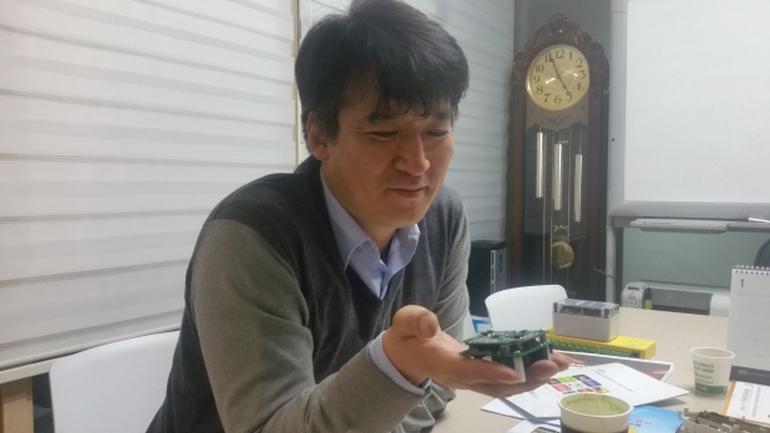Nare IoT Lab’s ArcLow module
Image supplied
Internet of Things (IoT) isn’t just about flashy gadgets. Affordable modules, networks, and technology offer innovative and cost-effective new systems in the backend and infrastructure that can protect properties and human lives.
South Korean startup Nare IoT Lab’s Prevention System for Electrical Arc Fires is one such example that will be on the rise. Nare’s system can distinguish between a harmless electrical arc and a dangerous arc that can cause fires in livestock farms.
Protecting livestock from arc fires
An arc fault is a high-power discharge of electricity between two or more conductors. Conductors, which are supposed to be isolated from each other, can meet due to damage to wires or loose connections, common in outdoor settings such as livestock farms.
The discharge translates into heat, which can break down the wire’s insulation and possibly trigger an electrical fire. According to the National Fire Data System run by South Korea’s Ministry of Public Safety and Security, out of 42,135 fires in the country in 2014, 22 percent were caused by electricity. Out of the 9,445 fires caused by electricity, 76 percent were caused by arc faults.
Nare’s ArcLow module detects the formation of arcs. If it deems the arc to have high heat –enough to cause fire — it sends a warning to the owner’s smartphone, and he or she can choose to turn off the power grid in the area where the arc has formed. An alarm also goes off in the area, and each incident is saved on a big database for future reference.
CEO Choi Seoung Wook has been working in security, including fire prevention, since 2007. Before the rise of smartphones, he worked on installing security cameras on farms, factories, automobiles, and private homes, and built systems where pictures and status updates were sent in a text on feature phones.
“The rise Internet of Things was an opportunity for us. Affordable modules and network fees allow vendors like us to create more sophisticated systems cheaply,” said Choi. SK Telecom, the country’s largest wireless operator, launched an IoT-dedicated network based on LoRa standard this July, which costs only 2,000 won per 100MB data for clients.
The firm has clinched a deal with a Japanese firm to supply the ArcLow modules as an OEM. The next plan is to export the solution to Europe and Asia.

Choi shows the ArcLow Module which can be packaged to a customer’s liking.
Smart farms
Before Nare IoT Lab, Choi founded Nare Trends, which, starting in 2012, provided farms with an intelligent livestock management system. His interest in providing farms with IoT systems grew from a family business of sorts: Choi’s father-in-law owned a peach farm where he frequented.
“I visited the farm regularly, so I naturally found out about their concerns over security, fire and managing inventory,” said the CEO. On many occasions, his father-in-law complained about being robbed. So Choi installed cameras for him. His idea for a smart farm business grew from there.
The business, now branded Banditbool, which means “firefly” in Korean, has 500 farms as customers and provides a total IT system for management and security. Choi’s team installs CCTV and sensors that detect temperature, power, water supply, humidity, ammonia levels, CO2 levels, invaders, and arc faults (ArcLow). All the sensors are controlled though a main controller unit that allows the owners to view the status through their smartphones and collect data for inventory management.
The business was awarded the best IoT business in 2015 by the Ministry of Science, ICT and Future Planning. It is being applied in all areas of farming, including chicken, pig, and cow farming, as well as greenhouses. Nare was chosen as a recipient of SK Telecom’s Advanced, Ace, Agriculture Venture Star (AVS) program, which chooses technology startups that work in smart farm areas.
The arch fire system is being separately marketed to export globally, while Choi plans to continue expanding the lucrative smart farm business in South Korea, though he continues to mull over creating synergy between the two solutions to develop new services.
“The arc fire system as a separate business has a wider applicability, so we want to focus it more globally,” said the CEO. “Internet of Things infrastructure is expanding, while network fees and modules are becoming more and more affordable.”
Farmers are on tight budgets, Choi said, and cheaper network fees allow such industries to afford new IT services.
“I have no doubt we, and other emerging IoT businesses, will find new opportunity locally as well as globally.”
